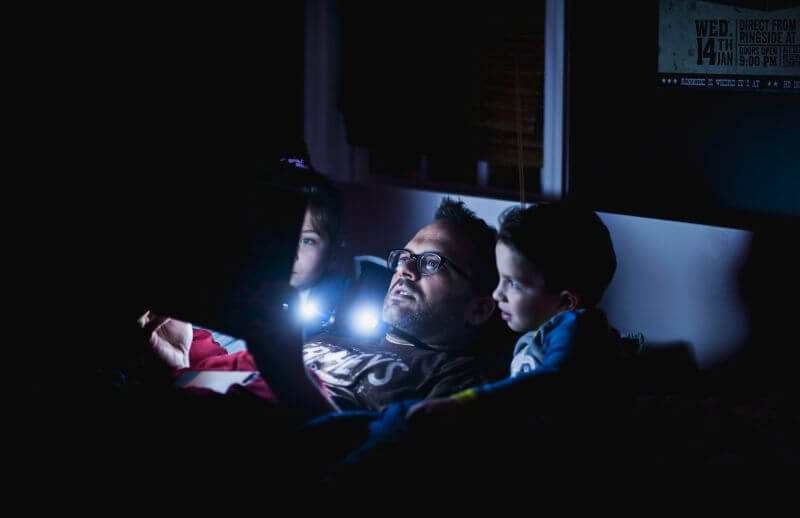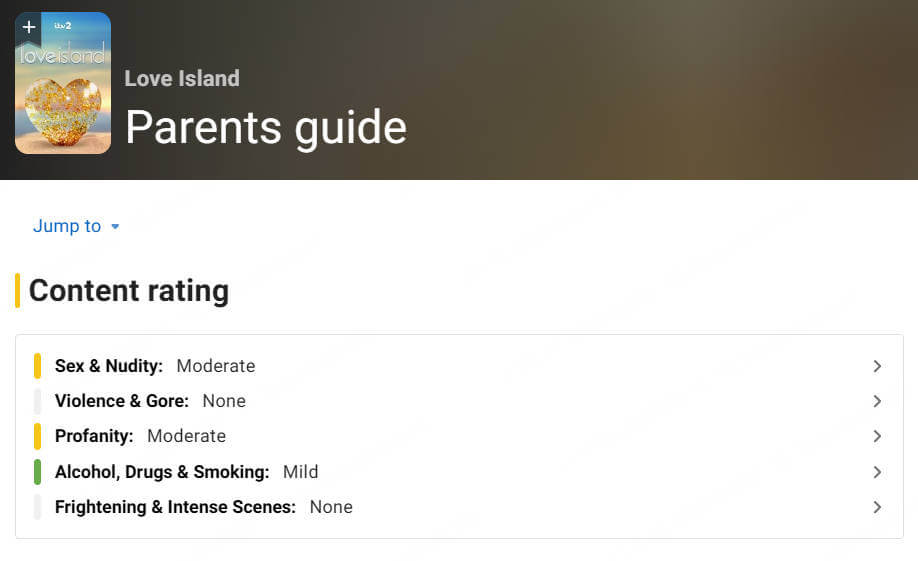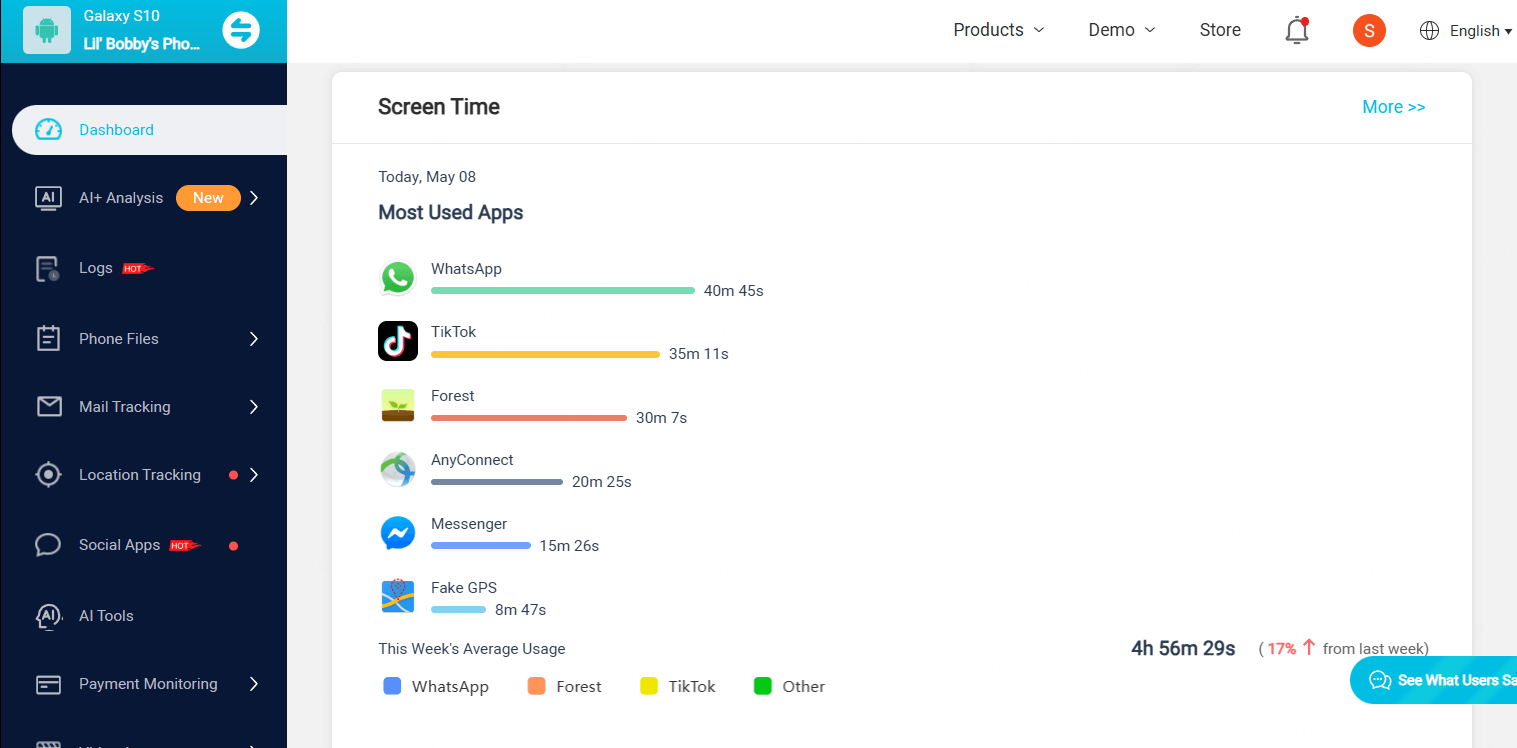ClevGuard Support: Monitor Devices with Others' Permission.
Glamorous islanders, steamy villa life, shocking recouplings, and public-voted drama are what the popular American TV show, Love Island, is about. But there’s drama in the home for parents as well. The increased access to social media means teens are less likely to miss the headlines of turbulent relationships and continuing drama in the show. Parents find their kids showing an interest in the antics of the participants and asking, "Is Love Island for kids or not?" If you’re asking the same question, this is the right place.

This guide details what the show offers and if it’s appropriate for kids. It also shares some valuable tips and actions to follow if your kids want to watch Love Island.
Table of Contents
Part 1: What Is Love Island?
Part 1. What Is Love Island?
Love Island is a reality dating show that airs on Peacock and releases new episodes every day, excluding Wednesday. The American show concluded its 7th season in July 2025 and was renewed for an 8th season. It is based on the British series with the same name, which first aired in 2015 and concluded its series 12 on 4th August this year.
The premise is simple: five single men and women are brought to a beach house or Villa, and are coupled up. Their goal is to try to win $100k by performing specific tasks in every episode and getting enough votes to survive till the end. Audience voting is a big part of this show, and their votes determine who wins the monetary reward, along with major changes within the villa throughout the season.
Part 2. Is Love Island Appropriate for Kids?
No, Love Island is not appropriate for kids, as it contains explicit scenes, innuendos, argumentative behavior, and cursing. As per IMDB, Love Island USA's age rating is TV-MA, which means the program is only suitable for mature audiences and may be unsuitable for kids below 17. The age restriction on the Apple App Store also indicates that users must be 17 or older to download the app.

Reality TV shows like Love Island are a huge part of television viewing culture. The adults might understand that everything that’s shown on the show isn’t real, but kids might be too young for that. So, here are the risks of kids watching Love Island.
1Poor Body Image and Low Self-Esteem
Love Island is about depicting women and men idealizing physical beauty. The participants in the show have perfect hair, makeup, and bodies. It thereby gives the perception that one needs to look good to be popular or successful. And it potentially impacts the child negatively on their body image and self-esteem, especially for those who are more vulnerable.
2Unrealistic Relationship Expectations
Reality TV shows like Love Island portray quick-forming relationships, often with a few interactions and little time spent. Watching this, a child might develop misguided notions about how relationships form. In reality, one must spend a long time together with someone to establish a deep emotional connection with them. Also, they might not be able to deal with the rejections from the other person.
3Normalization of Aggression and Bullying
Love Island is inappropriate for kids also because it reveals inappropriate behavior within peer groups, often portraying interpersonal drama, aggression, and bullying. The couples seem to engage in heated altercations, arguments, and abuses. This can normalize dysfunctional relationship dynamics and contribute to a culture of conflict among viewers, especially children.
The relational aggression between the girls in the show also normalizes the idea of gossiping in female relationships. It gives a perception that one must be derisive and competitive with one another. Also, they might feel it’s important to be mean to others to gain respect or do things in a way they want. A child might imitate these behaviors, believing them to be acceptable.
4Distorted Values
Love Island and similar reality shows often show people drinking, partying, and being fond of material possessions. It promotes luxury and brands, and contestants usually prioritize material wealth and appearance over genuine connection. They are also seen drinking in a live show. This type of behavior can influence the values of children, causing them to prioritize materialistic things more and lead an unhealthy lifestyle.
Part 3. What If My Kids Want to Watch Love Island?
Considering the risks of watching the show, there’s no doubt that Love Island is inappropriate for kids. However, with access to social media, teens are unlikely to miss any headline the show creates. As a result, if your kids become intrigued by Love Island, make them understand the risks involved and use parental control tools to keep an eye on them.
Explain the Plot: To start, explain that the Love Island show is a game where ten contestants fight to win. There’s a cash prize involved, and contestants will do anything to win without prioritizing building a good relationship. The fights, manipulations, and everything the contestants do are out of the enormous pressure they are under to win the prize. And, people in real life aren’t under this kind of pressure, and they shouldn’t be, or they are likely to make poor choices.
Explain What Healthy Relationships Look Like: Reiterate the fact that no real-life relationships start the way you see in reality TV shows like Love Island. Instill the importance of trust, honesty, respect, and communication for a relationship to thrive. Your child must watch Love Island to learn how not to do it, rather than how to do it.
Explain the Importance of Body Image: Love Island depicts both men and women as sculpted to perfection without a hint of cellulite. Take this opportunity to teach them that this body type isn’t the norm and comes in various shapes and sizes, and imperfections are imminent. This way, your child won’t develop a feeling of inferiority and inadequacy and won’t consider any cosmetic procedures to achieve the perfect physique.
Help Your Child Develop Critical Responses: Commenting when something seems scripted or fake can help your child develop critical responses. Watch the show alongside your child and use breaks or pauses to talk. For example, you can ask what you think about the current scenario or what message you get from the show. If you see your child cannot come up with answers like, “the people here are self-centered or nasty to their partners,” your commentary will help.
Use a Parental Control App: While clear communication with your child might work, to ensure they don’t stream Love Island and similar shows, you must keep an eye on them. KidsGuard Pro is the best and most affordable parental control app, combining intuitive design and features. Setting it up is simple, and its dashboard displays everything your child does on their phone.

You can see what your kids are doing on their phones in real time and take screenshots at regular intervals to keep evidence of their wrongdoings. It shows details of the time your kids spent on each app and can limit or block it to prevent further access. Other than that, its keylogger feature provides instant alerts of what your kids type on their keyboard. Overall, it’s a useful way for parents who want complete control and peace of mind that their kids don’t watch anything inappropriate.
Conclusion
So, if somebody else comes up to you and asks, “Is Love Island for kids?” the answer is no, as you’ve seen throughout this guide. Although such reality TV shows can be highly entertaining, it’s crucial to be aware of the messages and values they portray. As a parent, it’s your duty to teach your child about how to recognize and process the skewed values of such shows. You can follow the tips above to communicate properly and use parental control tools like KidsGuard Pro. It’s one of the most comprehensive apps that lets you keep an eye on your kids’ online activities and keep them safe. So, try now!



